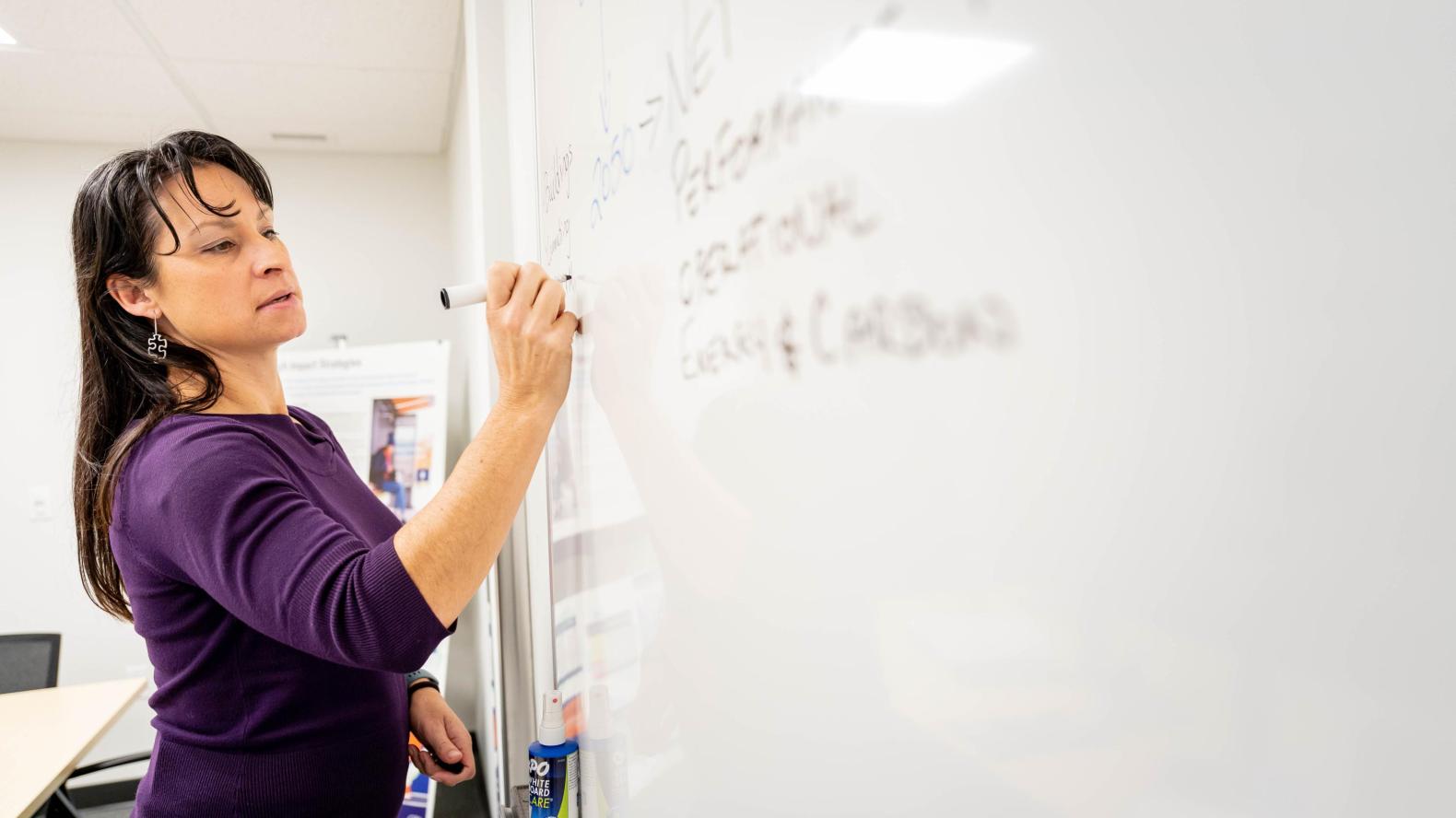
The project focused on introducing climate-related content into large first-year math courses, intending to reach nearly 5,000 students annually, and developing a set of publicly accessible teaching materials that any instructor can use or adapt, designed to strengthen both mathematical skills and climate literacy. Instructors are encouraged to explore the materials, modify them as needed, and bring them into their classrooms.
The project was built on collaboration between faculty, staff, and students. Dr. Tara Ivanochko and Oliver Lane from UBC’s Sustainability Hub, together with Dr. Peter Harrington and Dr. Bachmann, organized a series of meetings that brought Math and EOAS faculty together. Presentations by Phil Austin, Rebecca Tyson, Sarah Wyse, Valentina Radic, Brian Marcus, Peter Harrington, Rachel White, Frederick Noack, Christian Schoof and Anais Orsi, introduced mathematicians to core concepts from climate science and in return provided the group of climate scientists with insights into what is taught in first-year math courses.
Many of the assignments and activities developed through the project were directly inspired by the ideas shared in these presentations. In addition, a presentation by the Sustainability Hub team shed light on the impacts of climate change (and the experience of learning about climate change) on human wellbeing and mental health.

Student Involvement
Student contributions were central to the project’s success. Two undergraduate students, Raphael Kelly and Nathan Bailey, developed the majority of the assignments under the supervision of Dr. Bachmann and Dr. Harrington. Their work demonstrates how student engagement can drive meaningful curricular innovation.
Another undergraduate student, Jose Reyeros Sanchez, focused on supporting student wellbeing. Acknowledging the emotional impact that learning about climate change can have, he worked with the team at the Sustainability Hub to bring together resources for students experiencing climate anxiety. These materials are part of a UBC STEM and Climate Wellbeing Toolkit, offering strategies for resilience and reflection. In addition to developing these resources, Oliver Lane and Jose Reyeros Sanchez took part in outreach events across campus, helping to raise awareness of the project and the tools now available for faculty and students.
The Role of Interdisciplinarity in Sustainability Education
At its core, Climate Math demonstrates the value of interdisciplinary collaboration in teaching. By connecting different fields of study, the project has produced practical, engaging resources that help students link what they learn in math classrooms to broader environmental issues. This is a valuable example of the kind of interdisciplinary work that is needed to help advance and enrich sustainability education opportunities for all students at UBC.
The project team invites all instructors to explore the Climate Math GitHub and consider how these resources might support your teaching. Whether you’re updating a single assignment or rethinking an entire course, these materials are free and available to use and adapt for your classroom.
